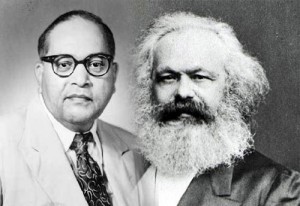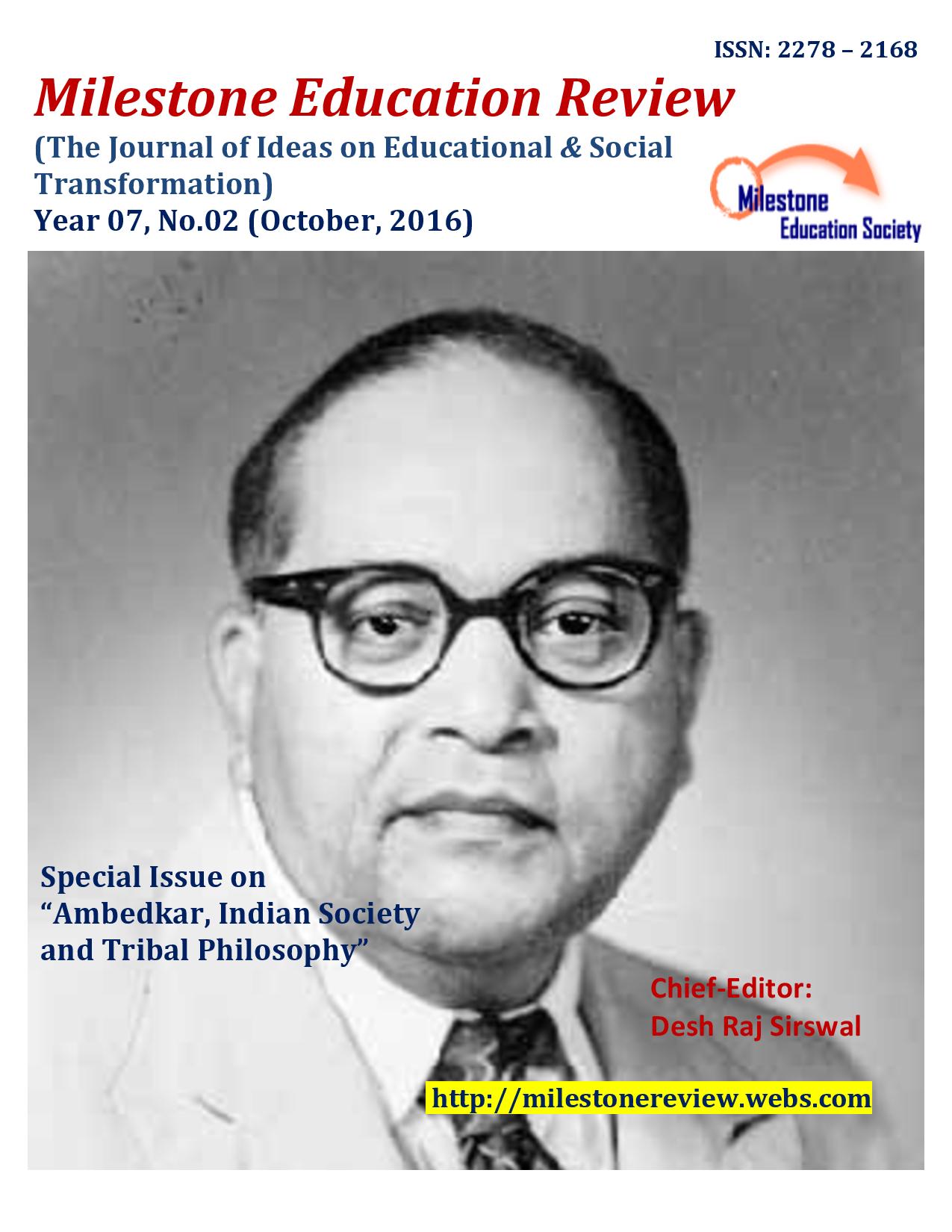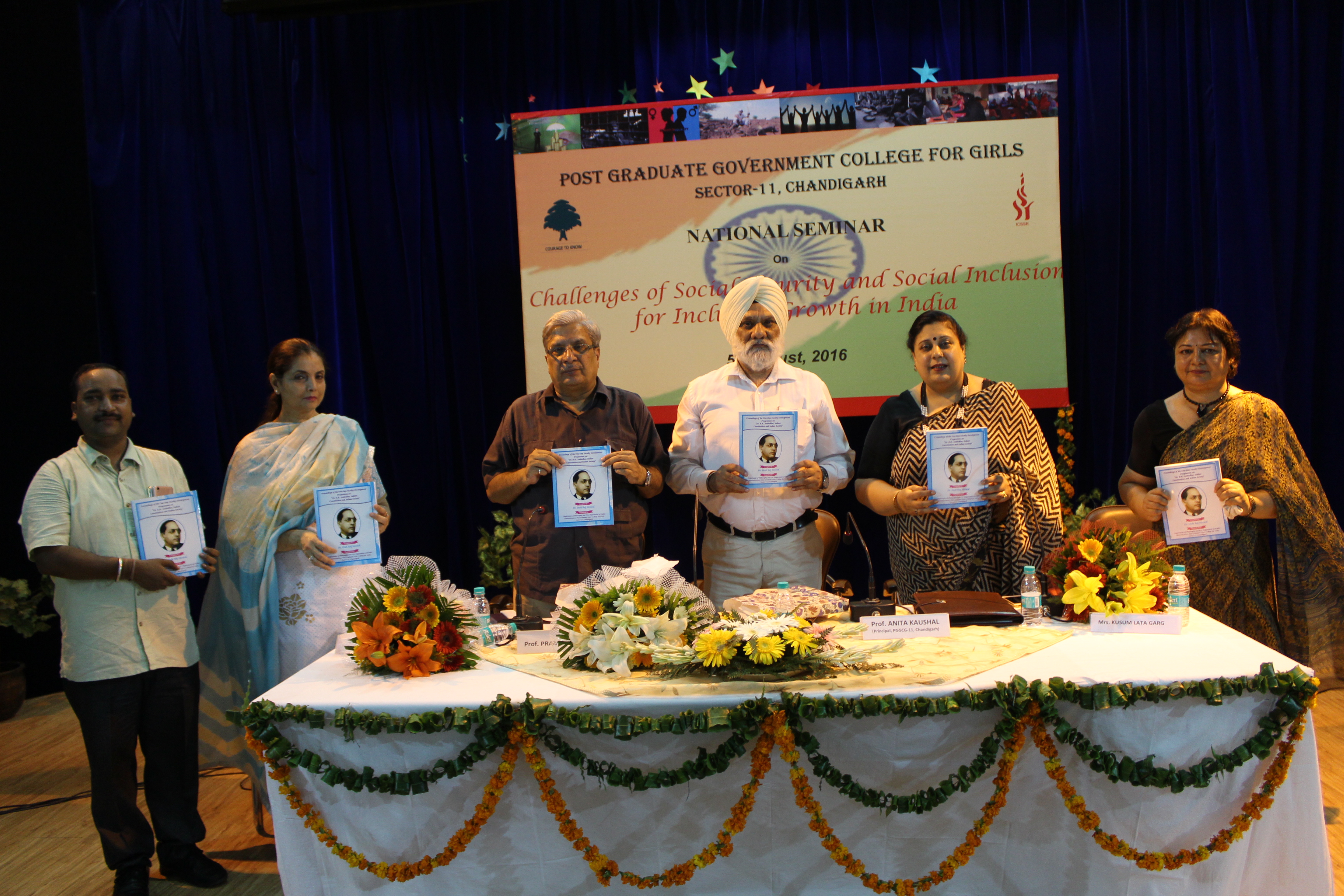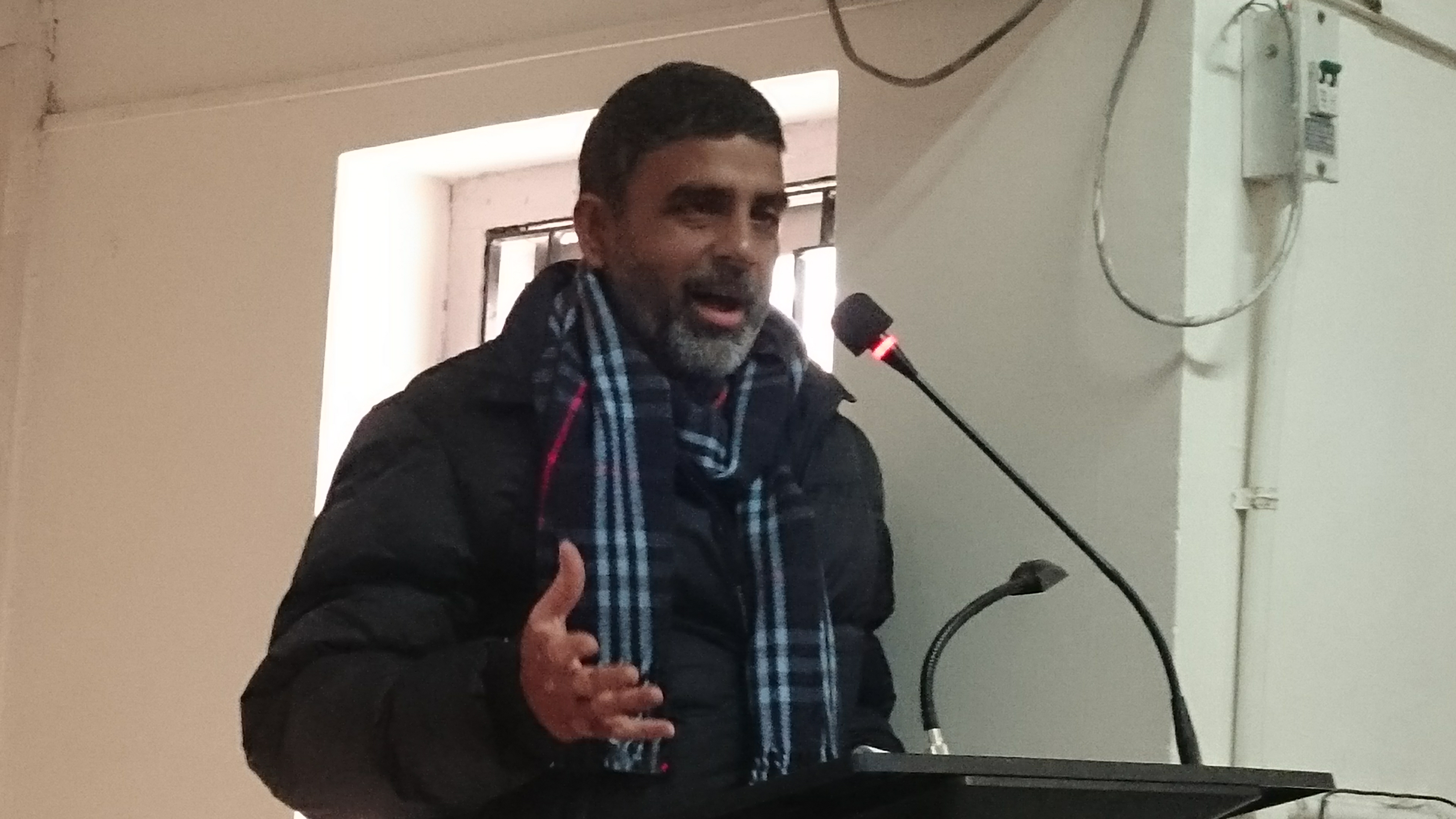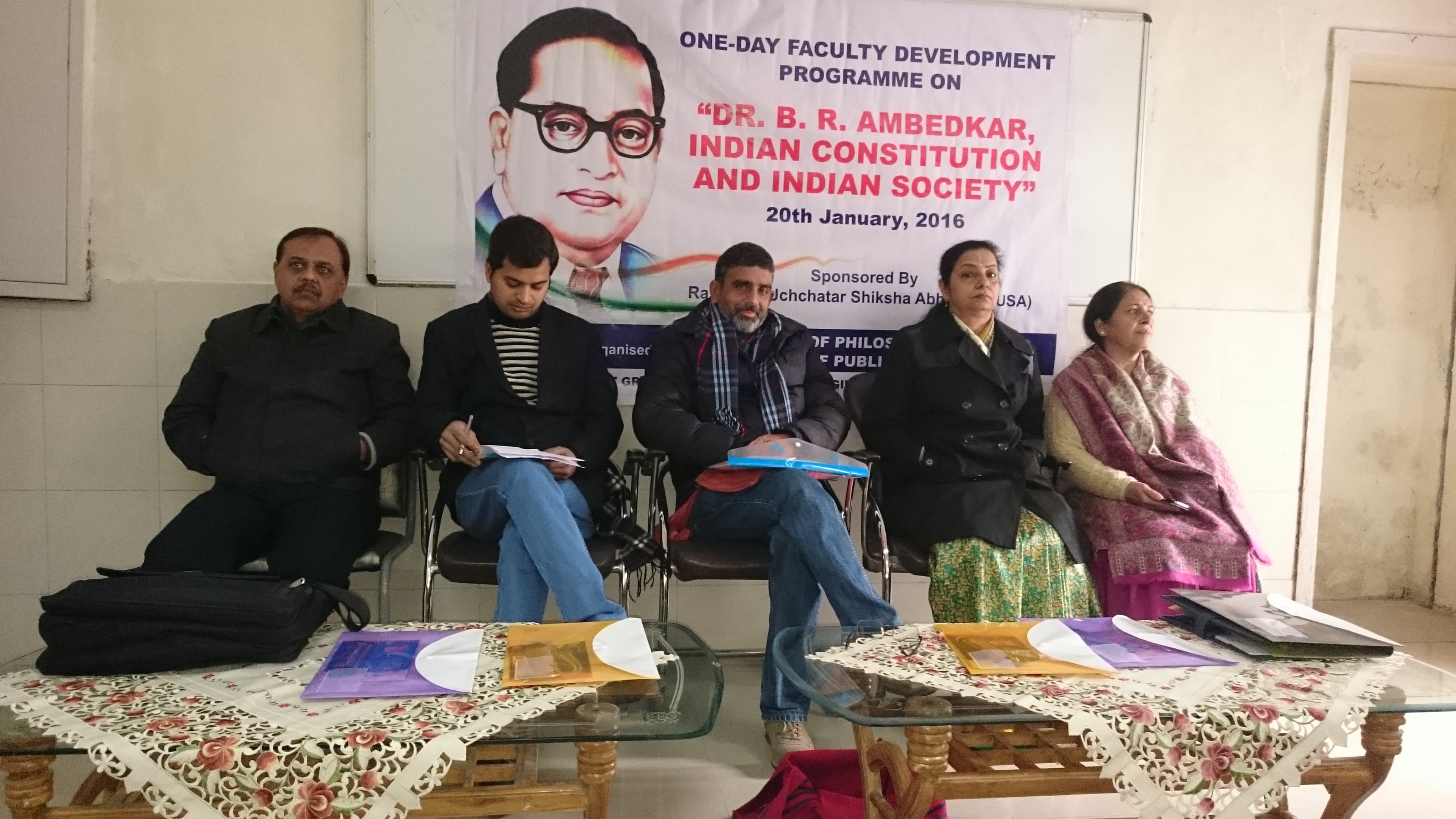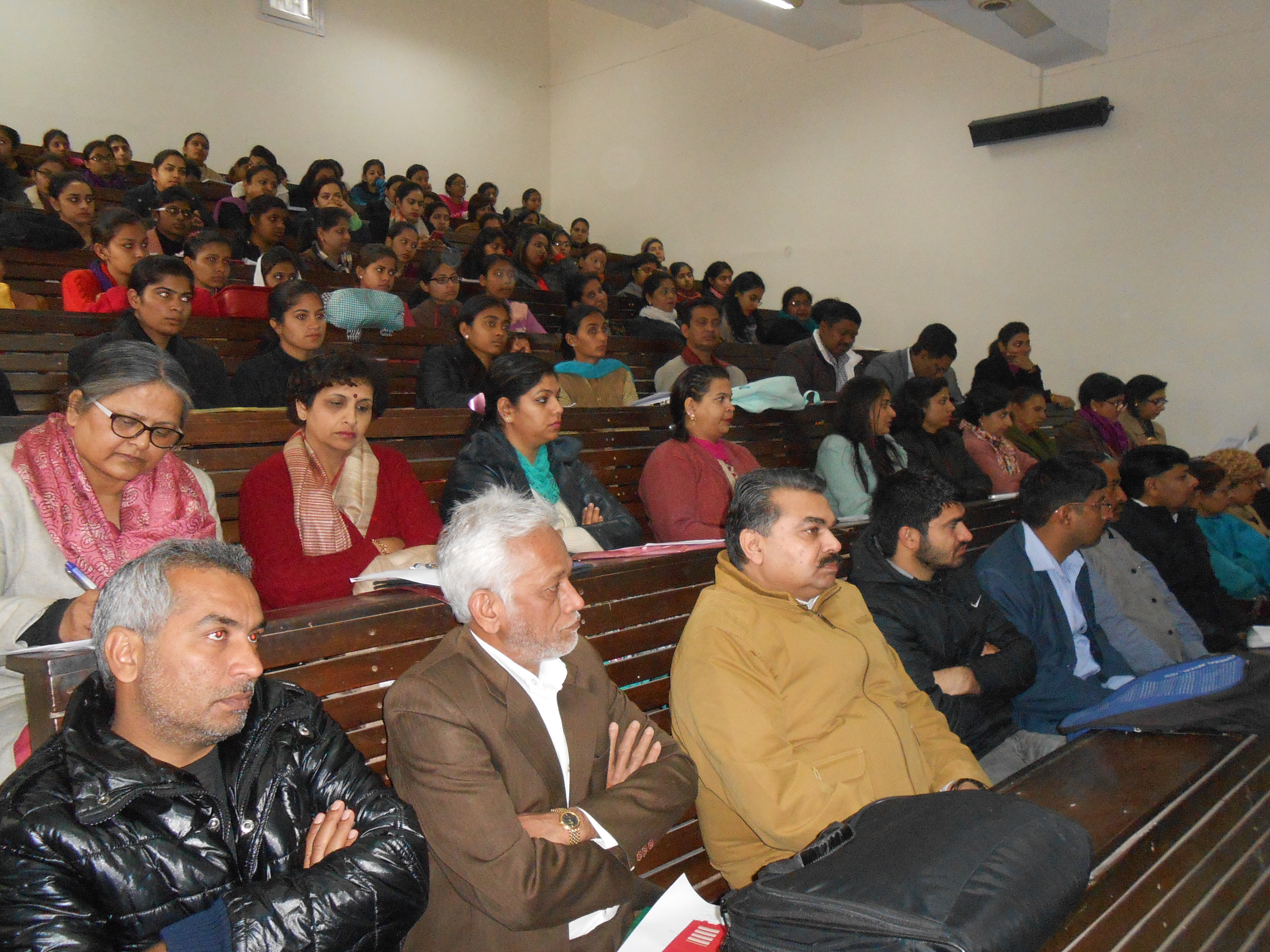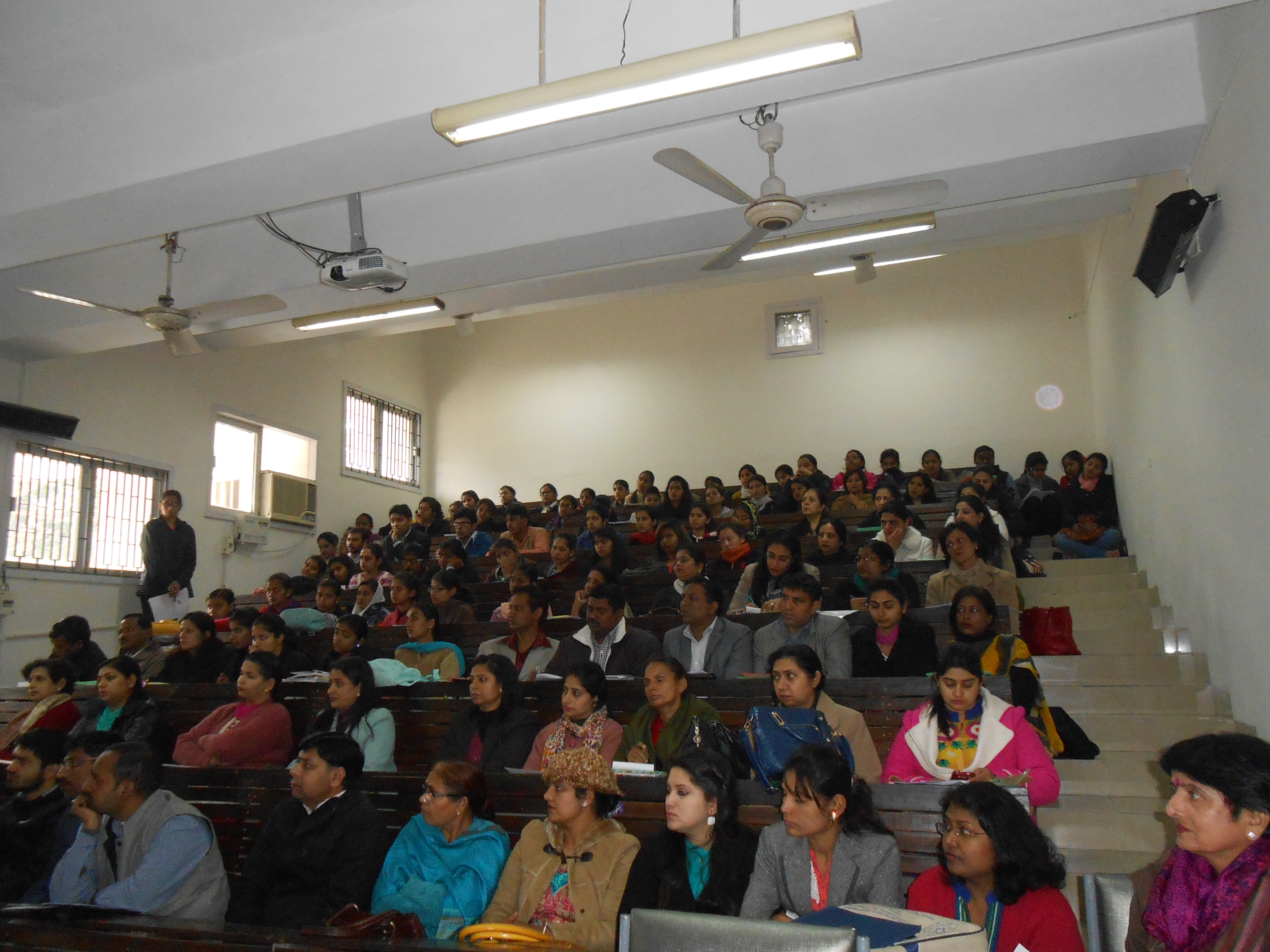- प्रस्तावित संगोष्ठी का शार्षक :
उत्तर भारत में दलित आंदोलन : सिद्धांत, व्यवहार एवं चुनौतियां
- प्रस्तावित संगोष्ठी की संकल्पना
भारत में दलित आंदोलन की अवधारणा का आरम्भ गुलामी से मुक्ति की आंकाक्षाओं से हुआ है। इस संदर्भ में दलित आंदोलन ने न केवल दलित मुक्ति का प्रस्ताव रखा बल्कि उत्पीड़न और दलन की पीड़ा के शिकार आमजनों की मुक्ति की राह भी खोली है। राजनैतिक चेतना के उद्भव से पहले भारत में इस मुक्ति संघर्ष की परंपरा सामाजिक और सांस्कृतिक आंदोलनों के रूप में ही दिखाई देती है। लेकिन दलित मुक्ति के साथ-साथ व्यापक सामाजिक मुक्ति के लिए राजनीतिक चेतना का उद्भव आधुनिक भारत में ही संभव हुआ। यह दलित राजनीतिक चेतना जहाँ एक तरफ इतिहास और संस्कृति से निकली है वहीं यह हमारे समय के सामान्य नजरिये से ऊर्जा ग्रहण करती है। इसे हम बाबासाहेब डॉ.अम्बेडकर के लेखन और उनकी राजनीति में देख सकते हैं।
ब्रिटिश राज के विरूद्व भारतीय स्वतंत्रता आंदोलन के दौरान आज़ाद भारत में किसको कितनी आजादी मिली थी- के मुद्दों पर चल रही बहसों ने आधुनिक दलित आंदोलन की पृष्ठभूमि तैयार की जो वास्तव में कई विभिन्न आंदोलनों का समुच्चय है। जहाँ गाँधीवादी संघर्षां द्वारा दलितों की समस्याओं को सिर्फ समाज सुधार और कल्याण कार्यक्रमों तक सीमित रखा गया वहीं मार्क्सवादी विद्वानों ने अपने आपको वर्ग के प्रश्न तक सीमित रखा। इस सबके बीच, राष्ट्र और वर्ग से निकलकर दलित आंदोलन ने जाति आधारित अधीनस्थीकरण के बजाय अपने को मुक्ति के प्रश्न से जोड़ा। उत्तर औपनिवेशिक युग मेंं इस पर काफी जोर दिया जा रहा है। वास्तव में दलित आंदोलन सत्ता हथियाने, किसी प्रांत पर कब्जा करने या किसी राज्य के विस्तार का आंदोलन नहीं है। यह दलित समाज द्वारा अपनी गरिमा की रक्षा, सामाजिक शोषण और उत्पीड़न से छुटकारा पाने का आंदोलन है।
इस सबके बावजूद, राष्ट्रवादी एवं मार्क्सवादी नजरिये से प्रभावित मुख्यधारा की अकादमिक चिंताओं में दलित प्रश्न पर ध्यान नहीं दिया गया। मसलन, इतिहास को लीजिए। औपनिवेशिक इतिहास ने भारतीय समाज को अपरिवर्तनशील और रूढ़ समाज के रूप में चित्रित किया। इस प्रकार के इतिहास ने निम्नवर्गीय लोगों के संघर्ष एवं उनके आंदोलन को नगण्य माना एवं उनकी अवहेलना की और उसे एकीकृत राष्ट्र की कहानी में समाहित कर दिया। मार्क्सवादी इतिहास ने वर्ग को अपनी विश्लेषण की प्राथमिक इकाई माना है और इस तरह जाति का प्रश्न मार्क्सवादियो के लिए द्वितीयक ही रहा, जबकि जाति भारतीय समाज की एक विशेष प्रकार की वास्तविकता है। इसी प्रकार समाज विज्ञानों ने दलित प्रश्न को महत्त्व नहीं दिया।
दलित आंदोलनों ने इन विचारधाराओं द्वारा निर्मित कई मिथकों और शक्ति-संरचनाओं को तोड़ा है, जिससे वे इतने गहरे ढंग से जुड़े हैं कि उनकी उपस्थिति को सभी मान्यता दे रहे हैं। दलित आंदोलनों ने अपने संघर्षों के माध्यम से जाति आधारित शोषण को चुनौती दी है। दलितों के संघर्ष ने उन्हें मुख्यधारा के राजनीतिक शक्ति संरचना तंत्र में राह बनाने की ओर अग्रसर कर दिया है। उन्होंने परंपरागत शासक वर्गों पर सफलतापूर्वक दबाव भी बनाया है। इस कारण से, इन आंदोलनों और संघर्षां ने एकेडमिक क्षेत्र के बुद्धिजीवियों के एक हिस्से को इसके अध्ययन व समीक्षा हेतु बाध्य किया है। मुख्य रूप से दलित संघर्षां को केंद्र में रखने वाले दलित विमर्श ने समाज विज्ञान और मानविकी के सभी विषयों को प्रभावित किया है।
और बिल्कुल इसी समय, एक नवीन प्रकार की विद्वत्ता ने यह भी रेखांकित किया है कि पर्याप्त प्रगति के बावजूद दलित मुख्यधारा की राजनीति में दवाब समूह बनकर रह गए हैं। आमूलचूल सामाजिक परिवर्तन की धार कुंद पड़ती जा रही है। आज एक तरफ तो दलित आंदोलन में आंतरिक तनाव हैं तो दूसरी तरफ बाहरी चुनौतियाँ भी हैं। अन्य समस्याओं के साथ समाज में जाति को ज्यादा महत्व मिलना, लोकतांत्रिक और राज्य निर्देशित नीतियों की समस्या और वैश्वीकरण पूरे परिदृश्य को और भी जटिल बना रहे हैं। उत्तर अम्बेडकरवादी समकालीन दलित आंदोलन आगे तो गया है लेकिन वह नवीन दुविधाओं में फँस गया है।
इस परिप्रेक्ष्य में प्रस्तावित संगोष्ठी दलित आंदोलन से संबंधित नवीन शोधों और विचारों को एक साथ लाने का प्रयास है जिससे इसकी प्रकृति और व्यवहार, सफलताओं, दिक्कतों और चुनौतियों के बारे में बात की जा सके। विषय के विस्तार को देखते हुए इस
संगोष्ठी ने अपने आपको उत्तर भारत के दलित आंदोलन तक सीमित रखा है। लेकिन इसका आशय नहीं है कि इसने देश के दूसरे हिस्सों से इसके संबध को भुला दिया है।
निम्नलिखित प्रश्न एक दूसरे से संबद्ध हैं, इन उपविषयों के अंतर्गत संभावित शोधपत्र हो सकते हैं :
> दलित आंदोलनों से हम क्या समझ सकते है?
> उत्तर भारत में दलित आंदोलन का अब तक का क्या इतिहास रहा है?
> यह आंदोलन किन सिद्धांतों/विचारधाराओं/दृष्टिकोणों पर आधारित रहे हैं और इन्होंने दलित आंदोलन को कैसे रूप दिया और उसे आगे बढ़ाया है?
> उनका वास्तविक अनुभव क्या रहा है?
> उन्होंने किन समस्याओं का सामना किया है और उससे किस प्रकार मोलभाव किया है? और इससे उन्हें किस प्रकार की सफलताएँ मिली हैं?
> मुख्यधारा की राजनीति से दलित आंदोलन और दलित प्रश्न का संबंध कैसा रहा है?
> दलित आंदोलन की विविधता का क्या अर्थ और परिणाम रहा है?
> इतिहास और अस्मिता, सामाजिक परिवर्तन, लोकतंत्र और नागरिकता, राष्ट्र और राज्य, उदारीकरण और सांप्रदायिकता के मुद्दों से यह आंदोलन कैसे निपटते हैं?
> समकालीन दलित आंदोलन के विरोधाभास क्या हैं?
> उत्तर भारत के दलित आंदोलन को देश के अन्य भागों के दलित आंदोलन के साथ हम ठीक-ठीक कहाँ रख सकते हैं?
> जेंडर, वर्ग, अन्य पिछड़े वर्गां और आदिवासी जनों के प्रश्नों के साथ यह कैसे व्यवहार करता है?
> दलित प्रश्न और आंदोलन से समाज विज्ञान किस सीमा तक और किस तरीके से निपटता है?
> दलित अध्ययनों द्वारा किए गए हस्तक्षेप की प्रकृति क्या रही है? क्या इसे अपने आप में एक आंदोलन कहा जा सकता है?
> दलित प्रश्न और आंदोलनों को सांस्कृतिक व्यवहारों में किस प्रकार प्रस्तुत किया गया है?
उपर्युक्त उप विषयों पर शोधपत्र आमंत्रित किए जाते हैं। फौरी तौर पर इस गोष्ठी की संरचना और सत्रों के बारे में नीचे लिखा जा रहा है जिसे ध्यान में रखकर और पहले दिए गए प्रश्नों के आलोक में अपना शोधपत्र आगे बढ़ाएं।
उत्तर भारत के संदर्भ में
> दलित आंदोलनों का अध्ययन
> दलित आंदोलनों का इतिहास
> दलित आंदोलन में, और दलित आंदोलन का विचार
> दलित आंदोलन का व्यवहार, अनुभव और उसका प्रभाव
> दलित आंदोलनों की समस्याएँ, चुनौतियाँ और संभावनाएँ
> दलित आंदोलन में जेंडर, वर्ग, अन्य पिछड़े वर्गां और आदिवासी जनों के प्रश्न
> संस्कृति में दलित आंदोलन
> दलित आंदोलनों का देश के अन्य हिस्सों के आंदोलनों से संबंध और तुलनाएँ
तिथि : 26 से 28 नवम्बर 2018
स्थानः भारतीय उच्च अध्ययन संस्थान, शिमला
इस सगोष्ठी में सीमित संख्या में प्रतिभागियों को आमंत्रित किया जाएगा। इच्छुक प्रतिभागी अपने प्रस्तावित शोध पत्र के 500 शब्दों के शोध-सारांश और अपने आत्म-वृत्त को नीचे दिए गए ईमेल पर दिनांक 20 अक्टूबर 2018 तक भेज दें।
Dr. Ajay Kumar
Fellow
Indian Institute of Advanced Study
Rashtrapati Nivas, Shimla – 171005.
Mobile : 09415159762 E-mail: iiasajayk@gmail.com
Ms. Ritika Sharma
Academic Resource Officer
Indian Institute of Advanced Study
Rashtrapati Nivas, Shimla- 171005
Tel: 0177-2831385; +91-9044827297 (Mobile) Email: aro@iias.ac.in
चयनित प्रतिभागियों को संस्थान दिनांक 25 अक्टूबर 2018 तक आमंत्रण पत्र भेजेगा। यह संस्थान की नीति है कि वह सेमिनार की प्रोसीडिंग्स के बजाय शोधपत्र प्रकाशित करता है। इसलिए सभी आमंत्रित प्रतिभागियों से आशा की जाती है कि वे अपने पूर्ण, अप्रकाशित और मौलिक शोधपत्र संदर्भ सहित भारतीय उच्च अध्ययन संस्थान के अकादमिक संस्रोत अधिकारी को 20 नवम्बर 2018 तक भेज देंगे।
स्टाइल शीट के लिए संस्थान की बेबसाइट के इस पते पर जाएं : http://www.iias.org/ content/shss
सेमिनार की अवधि में भारतीय उच्च अध्ययन संस्थान प्रतिभागियों के ठहरने की व्यवस्था करेगा और वह भारत में आगमन के स्थान से लेकर शिमला तक वायुयान या रेल से आने-जाने का यात्रा व्यय भी अदा करेगा।
National Seminar
on
The Dalit Movement in North India: Theory, Praxis and Challenges
at
Indian Institute of Advanced Study, Shimla
(26-28 November, 2018)
(Tentative)
Concept Note
The Dalit Movement in India has grown from the desire for freedom from subjugation. In this context, the Dalit Movement has not only proposed Dalitemancipation but also, by implication, the liberation of all people suffering from oppression and repression in general. Before the rise of Dalit political consciousness in the modern era, this tradition of resistance, which was very old, was present only in what we narrowly understand as social and cultural movements of the past.While Dalit political consciousness in the modern period has acquired traction from the general mood of our age, it has centrally drawn from that history and culture. We can see this in the writings and politics of Baba Saheb Dr.Ambedkar.
During the anti-imperial movement against the British rule, the discourses on the issue of ‘Who will get what freedom in free India?’ prepared the background for the modern Dalit movement, which is in fact a collection of many diverse movements. Where as the Gandhian struggle limited itself toquestions of social reform and welfare programs in relation to the Dalits, the Marxists were primarily interested in questions of class. The Dalitmovement instead shifted attention to emancipation from caste-based subjugation, beyond the optic of nation and class. In the post-colonial period, this has continued to be its thrust. The Dalit movement is not a movement to capture power, to capture a province or to expand a state. This movement is a movement for dignity and against social exploitation and oppression.
Overall, mainstream academic concerns, due to the persistent influence of Nationalist and Marxist visions, have shown considerable indifference to the Dalit question.For example, take the case of History. Colonial history had portrayed Indian society as an unchangeable and static society. This type of history had not taken into account the struggle of the subaltern castes over the long past of the sub-continent.In response, nationalist history folded the memory of subaltern caste resistance into the story of the nation. Marxist history takes class and not caste as its primary unit of analysis, thus the question of caste is always secondary even though caste is a specific reality of Indian society. Similarly inclined, the Social Sciences as a whole have not quite given the Dalit question its due.
Yet the Dalit Movement has broken many myths created by these ideologies and the power-structures to which they are connected to the extent that everyone now recognizes its critical presence. Dalit struggles have paved the way for the entry of the Dalits into mainstream political power structures. They have successfully created pressure on the traditional ruling classes. For this reason, these movements have forced a section of intellectuals in the academic field to acknowledge and hence study and review their struggles and movements. Dalit Studies, which is centrally concerned with Dalitstruggles, has impacted all disciplines in the Social Sciences and Humanities.
At the same time, new scholarship has also noted that despite advances, the Dalits have been limited to being a pressure group in mainstream politics. The revolutionary edge of the campaign for social change is gradually becoming blunt. The Dalit Movement is today riven by internal tension on the one hand and beset by external challenges on the other.The continuing purchase of caste in society, the problems of democratic and state policy and globalization, among other things, are complicating the picture. Post Ambedkar, the contemporary Dalit movement has made strides but is also bogged down by new dilemmas.
This seminar is an attempt to bring together new research and thought on the Dalit Movement in this context to explore its nature and practices, successes, problems and challenges. Given the extensiveness of the subject, it limits itself to the study of Dalit Movement in North India, even though necessary and inevitable connections with other parts of the country may not be entirely forgotten. The following inter-connected question are central to this endeavour and can be considered as possible themes for papers:
- What may we understand by ‘Dalit Movement(s)’?
- What has been the history of Dalit Movements in North India so far?
- What principles/ideologies/visions have they been based on, shaped by and put forth?
- What has been their actual experience?
- What problems have they faced and negotiated, and what successes have they achieved?
- What has been the relationship between Dalit Movements and the Dalit question in mainstream politics?
- What has been the meaning and implication of diversity in Dalit Movements?
- How do these movements deal with the inter-related questions of history and identity, social change, democracy and citizenship, nation and state, liberalization, communalism?
- What are the contradictions in the contemporary Dalit Movement?
- How do we situate the Dalit Movement in North India in relation to other parts of the country?
- How has it dealt with questions of gender, class, OBCs and tribal people?
- To what extent, and in what ways, have the Social Sciences dealt with the Dalit question and movements?
- What has been the nature of the intervention of Dalit Studies? Can it be called a movement in itself?
- How have the Dalit question and movements been represented in cultural practices?
All these questions will be the focal points in the discussions in the seminar.
Papers are invited on the above themes. A tentative outline of the structure and constituent sessions of the seminar is as follows and applicants might keep this and the above given questions in mind when planning their papers:
In the context of North India
- Studies of Dalit Movements
- History of the Dalit Movements
- Ideology in and of the Dalit Movement
- The Practice, Experience and Impact of the Dalit Movement
- The Problems, Challenges and Possibilities of the Dalit Movement
- The Questions of Gender, Class, OBCs and Tribal Peoples in the Dalit Movement in North India
- The Dalit Movement in North India in Culture
- Connections between and Comparisons of Dalit Movement in North India and other regions
Page Break
Call for papers
A limited number of participants will be invited for the Seminar. Those interested in participating should send (preferably by email) an abstract (500 words) of the proposed paper along with their C.V. to:
- Dr. Ajay Kumar
Fellow
Indian Institute of Advanced Study
Rashtrapati Nivas, Shimla – 171005.
Mobile : 09415159762
E-mail: iiasajayk@gmail.com
- Ms. Ritika Sharma
Academic Resource Officer
Indian Institute of Advanced Study
Rashtrapati Nivas, Shimla– 171005
Tel: 0177-2831385; +91-9044827297 (Mobile)
Email: aro@iias.ac.in
The last date for submission of abstract is 20 October 2018 till 12:00 midnight. The Institute intends to send Invitation letters to selected participants by25 October 2018. It is the policy of the Institute to publish the papers not proceedings of the seminars it organizes. Hence, all invited participants will be expected to submit complete papers (English or Hindi), hitherto unpublished and original, with citations in place, along with a reference section, to the Academic Resource Officer, Indian Institute of Advanced Study, Shimla–171005 by 20 November, 2018.
Style sheet for the submission of papers may be downloaded from the IIAS website http://www.iias.org/ content/shss.
IIAS, Shimla, will be glad to extend its hospitality during the seminar period and is willing to reimburse, if required, rail or air travel expenses from the place of current residence in India, or the port of arrival in India, and back.
Link:
http://www.iias.ac.in/event/dalit-movement-north-india-theory-praxis-and-challenges






